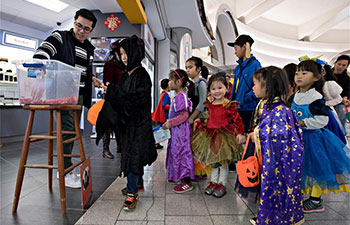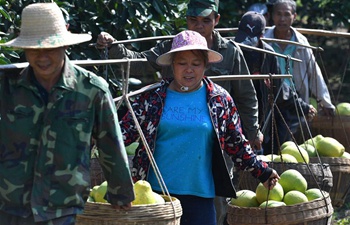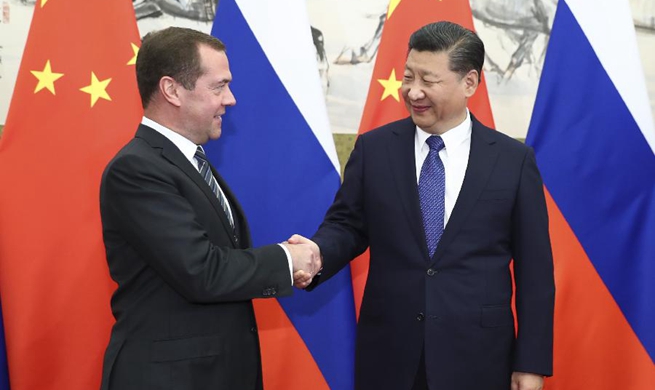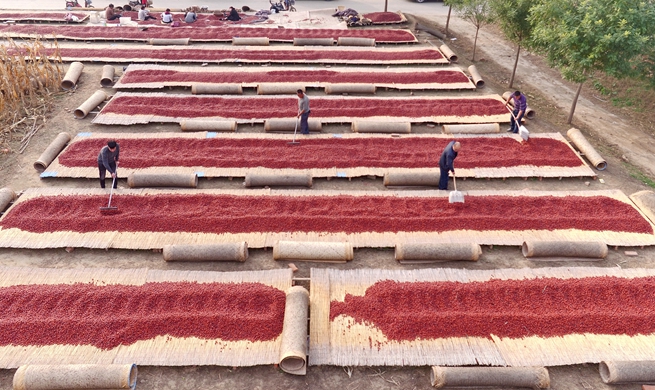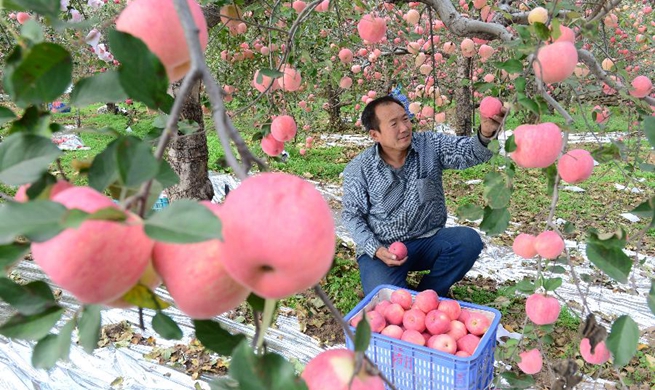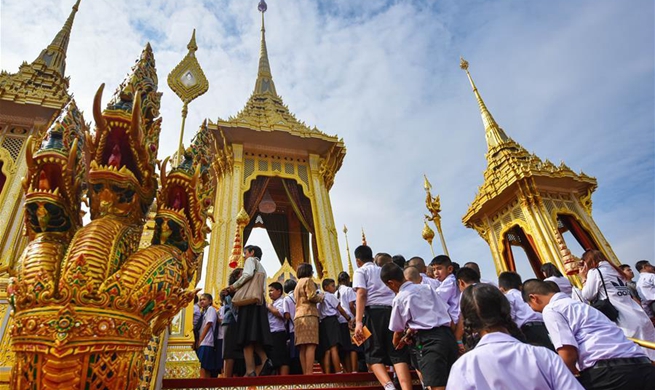UNITED NATIONS, Nov. 1 (Xinhua) -- Building a community of shared future for mankind is "critical for world peace and development, and represents a vision for promoting international cooperation in a world where nations are interdependent and interlinked," Maleeha Lodhi, Pakistan's ambassador to UN said here Wednesday.
It is the most important and ambitious 21st century idea aimed at promoting global peace and sustainable development, she said.
In our interconnected world, no single country or a group of countries can on their own address the complex transnational security and development challenges confronting us, Lodhi said, adding that this concept presents an innovative approach by seeking to build an international community based on the convergence of interests and cooperation rather than competition.
Such an approach is also designed to ensure that the international system becomes more just and equitable, she said.
We believe the idea of creating a "community of shared interests" is critical to promote economic prosperity and development for all and not some, and where nations complement each other to realise the shared objectives of eliminating poverty and achieving lasting prosperity.
In addition to traditional challenges, newer security threats like transnational terrorism and cyber crime transcend national borders and disrupt global security, thus making it impossible for any single country to tackle them alone, she said.
The community of shared interests represents an effective response to threats in a world characterised by an increasingly complex and multidimensional security environment, the ambassador said.
Moreover, promoting regional and global cooperation for development in a fair and equitable manner also reinforces security, as it bridges gaps between countries and reduces disparities, thus overcoming confrontation, she said.
In this regard, the Belt and Road Initiative - running across three continents, involving over 60 countries and around 4.4 billion people - stands out as the most significant initiative of our times for promoting transnational connectivity, enhancing trade and investment and facilitating cooperation to fully utilize the economic potential of the participating countries.
The China-Pakistan Economic Corridor (CPEC), regarded as a flagship project of the Belt and Road Initiative, is being implemented jointly by the two countries, she said.
The CPEC will open up new opportunities for development, enhanced connectivity and greater people-to-people contacts between the two countries, she said, adding that it would thus boost and accelerate regional and global economic growth, she said.
By promoting regional connectivity, enhancing trade and investment and stimulating regional growth, CPEC can be expected to help improve the lives of an estimated 3 billion people in China, South Asia and Central Asia, who would benefit from the economic corridor, Lodhi said.
The idea of creating a community of shared future for mankind represents an effective approach to addressing new and emerging security threats in an increasingly interconnected world, where regional and international cooperation is essential to address common threats in a comprehensive manner, she said.
In the realm of security, a "community of shared future," based on common interests and shared responsibilities, would entail building trust and confidence among nations. Such an approach would significantly contribute towards enhanced global security, and greater regional peace and stability, said the ambassador.








